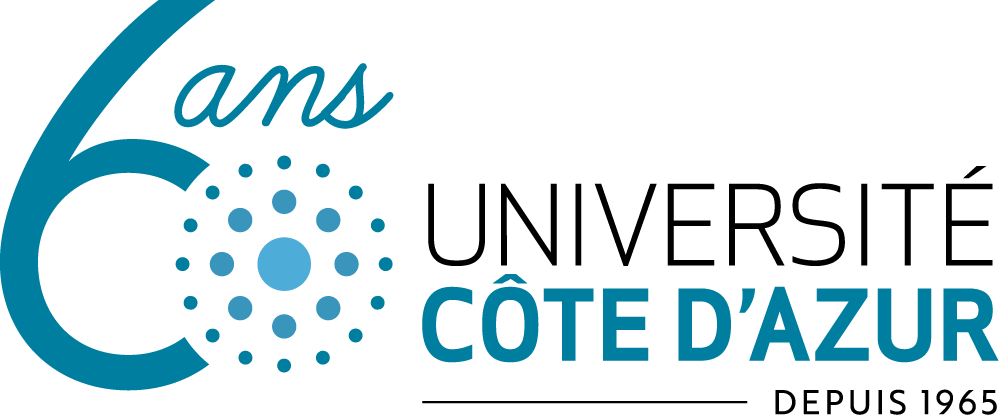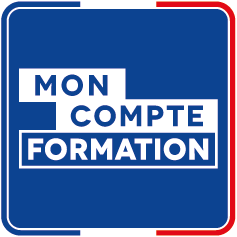Informations
Type of program
Continuing education
Initial education (work-study only)
- Professionalization contract
- Apprenticeship contract
Employability rate
- 82.3%* 6 months after graduation.
*Average of the last two years
Go to content Navigation Direct access Intranet/ENT


Type of program
Continuing education
Initial education (work-study only)
Employability rate
*Average of the last two years

The master's degree in wealth and financial management / asset management (CPFAM) is a high-level professional program leading to managerial and executive financial positions in banking and financial institutions.
This track prepares for jobs in retail, private and investment banking, managing the investments and financial operations of high net-worth clients, and assisting them in building up or developing their assets.
It meets the needs of professional circles looking for employees who are familiar with regulations and the most sophisticated financial products and markets, and who can quickly become operational in the fields of financial risk assessment and management, and wealth management.
Unique features of the program :
The objective of the master's program is to provide the following skills :
For more information about the program’s satisfaction rate, please contact the head of the program.
The success rate in 2023/2024 was 87% under the former name of the track: Banking Management and International Finance.

Training accessible to disabled people.
Consult website

Training eligible for "MON COMPTE FORMATION"
moncompteformation.gouv.fr</
Students with a bachelor’s degree in economics and management, a bachelor’s degree in mathematics applied to the social sciences (MASS), and bachelor’s degree in banking, insurance and finance.
Dematerialized application files.
Applications are submitted on the Mon Master platform for M1 students, and on the ecandidat platform for M2 students.
Consult the procedure
Applicants are admitted on the basis of previous academic achievement from the baccalaureate onwards, grades in fundamental subjects in economics and finance, at least C1 level in French (for non-French speakers), and their career project and professional experience.
After a pre-selection based on their application file, students are invited for an interview with the program directors.
A work-study contract is an asset in the selection process.
Semester 1
Unité 1 - Marchés et instruments financiers (6 ECTS)
Stratégie d’options et produits de taux
Les produits et techniques de la banque-assurance
Organisation et fonctionnement des marchés
Fusions et acquisitions
Unité 2 - Gestion d’actifs et Investissement (6 ECTS)
Socialement Responsable
Gestion de portefeuille
Ingénierie patrimoniale
Évaluation des risques financiers
Finance durable et ISR
Unité 3 - Communication professionnelle en finance 1 (6 ECTS)
Techniques de vente et négociation commerciale
Coaching
Anglais économique et financier
Unité 4 - PPR1 - Méthodologie de recherche et gestion de projets 1 (12 ECTS)
Gestion de projets
Méthodologie de recherche
Rédaction d'une revue de la littérature
Unité 5 - Compétences transversales (3 ECTS)
Une mineure au choix parmi les mineures d'ELMI/DS4H/EFELIA
Unité 6 - Analyse financière et valorisation d’entreprises (6 ECTS)
Diagnostic bancaire
Gestion financière
Financement et valorisation des entreprises
Private equity et financement de l’innovation
Unité 7 - Environnement digital et numérique des banques et des marchés (6 ECTS)
Intelligence artificielle appliquée à la finance
Digitalisation et FinTech
Blockchain et cryptomonnaie
Unité 8 - Enjeux réglementaires, sociétaux et environnementaux des activités financières (6 ECTS)
Réglementation et conformité
RSE et évaluation extra financière des entreprises
Analyse conjoncturelle
Unité 9 - Communication professionnelle en finance 2 (3 ECTS)
Management d'équipe
Anglais économique et financier
Unité 10 - PPR2 - Méthodologie de recherche et gestion de projets 2 (9 ECTS)
Méthodologie et séminaures de recherche
Rédaction et soutenance du mémoire/projet d'étude
Préparation au TOIEC / TOEFL
Stage
Unité 11 - Compétences transversales (3 ECTS)
Une mineure au choix parmi les mineures d'ELMI/DS4H/EFELIA
The program runs from September to the end of March and alternates one week on the job with one week in class. From mid-May to the end of August, work-study students work full-time on the job.
Program only available in work-study format
Work-study schedule
Find an internship, work-study opportunity or job on the university website.
The program is partly graded by ongoing assessment (personal projects, group projects, oral presentations) and partly by end-of-year exams (lasting 1 to 2 hours). Group projects include writing summary notes, which are also graded and added to the internship grade.
More information on knowledge assessments
Master 1 students are automatically admitted into Master 2, if they have successfully completed the first year.
Master 2 students may pursue their studies with a doctorate, if they obtain funding.
Wealth manager, wealth engineer in a private bank, design of and expertise in banking and financial products, financial wealth management consultant, investment advisor, asset manager, bank branch manager, etc.
86.5% of graduates have found a job within 6 months of graduation, and 95.7% within 30 months (average over the last 2 years)
In addition to OVE statistics, view the results of our internal survey of alumni employability.
Students who plan to enroll full-time in a public institution of higher education must pay the Contribution to student and campus life (Contribution de Vie Etudiante et de Campus - CVEC).
Students must also pay tuition fees, which are set by ministerial decree for national degrees. They are indexed to the national consumer price index.
More information about tuition fees is available on this webpage.
If you are returning to school after a professional experience, you can find more information about tuition fees on the website of the Université Côte d'Azur Continuing Education Department.
After receiving the authorization to enroll, students must register online.
Information about the application process
Find more information for new students in the student booklet.















